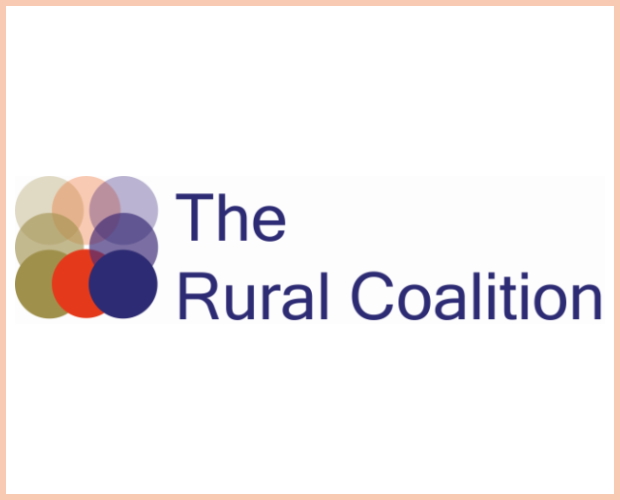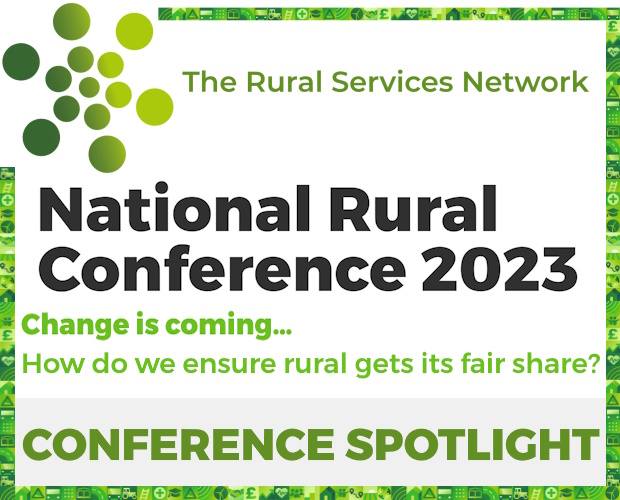T: 01822 851370 E: admin@sparse.gov.uk
Rural Economy Spotlight - December 2022

A quarterly bulletin facilitated by your membership of the Rural Services Network highlighting a selection of current rural economic development news, issues and opportunities
UK Shared Prosperity Fund expenditure gets the green light
On 5th December, government made the long-awaited announcement that local spending plans for the UK Shared Prosperity Fund (UKSPF) have been approved.
Government state: “People across the country will benefit from £2.6 billion of investment in skills, improved high streets, support for local business and more green spaces as the UK takes back control and approves spending plans for funding previously run by the European Union.”
This announcement, originally expected in October, makes funding available to be spent on levelling up in three areas:
- Communities and place: projects could include improving parks and green spaces, sports facilities and access to arts and culture to foster a greater sense of pride in place.
- Supporting local business: this includes support for entrepreneurs, as well as research and development grants for local businesses to help develop innovative products and services.
- People and skills: projects could include specialist support for people with a health condition facing additional barriers into decent jobs. This may include basic life skills, digital training and education in English and maths. As part of the Fund, a multi-million pound adult numeracy programme, Multiply, has been allocated across the UK to support people with no or low-level maths skills to improve their economic and life prospects.
Local investment plans were drawn up earlier this year by designated lead authorities in each area. In England, the fund will operate over the strategic geographies of the Mayoral Combined Authorities and the Greater London Authority, and lower tier or unitary authorities elsewhere. You can see a full list of the lead authorities and financial allocations at the following link:
Delivery geographies - GOV.UK (www.gov.uk)
50% of England now covered by Devolution Deals
Deals recently agreed with Suffolk and Norfolk mean that 50% of England will now be covered by a devolution deal.
The deals which transfer money and power over building, regeneration and skills into the hands of local leaders in Suffolk and Norfolk. Government state: “Suffolk and Norfolk will be devolved power over their Adult Education budget, so they can shape provision in a way that best suits the needs of residents and the local community, get immediate support to build new affordable homes on brownfield sites, handed new powers to help drive regeneration, and receive more capital funding to spend as they see fit.
“The deals will also see well over a billion pounds combined handed out to Suffolk and Norfolk, with the huge investment funds guaranteed for the next 3 decades. This will give each region the ability to drive growth and plan for the long term with certainty as they look to level up and unlock their economic potential.”
You can read more here.
The Suffolk and Norfolk deals followed hot on the heels of a deal for Cornwall where a proposed deal sets out the government’s plans to devolve more power to Cornwall Council through:
- Housing
- Transport
- Culture and heritage
- Tourism
- Education
You can read more on this deal at the following link:
Historic £360 million devolution deal transfers building and skills powers to level up Cornwall - GOV.UK (www.gov.uk)
Lead authorities submit plans for Rural England Prosperity Fund
Rural businesses and communities are set to benefit from up to £110 million of funding allocated by the government under the ‘Rural England Prosperity Fund.’
Described as succeeding EU funding from LEADER and the Growth Programme which were part of the Rural Development Programme for England, notional allocations of the fund were announced for a wide range of local authority areas in September.
Lead authorities have now submitted their plans for this money and, following government approval, funds are then due to flow between April 2023 and March 2025.
You can read the full list of eligible local authority areas and their notional allocations from the Fund here.
New funding for creative businesses in six regions
UK registered micro, small and medium enterprises in the creative sector can apply for funding of between £10,000 and £30,000 for innovation projects to grow their business.
Innovate UK, part of UK Research and Innovation, is to invest approximately £3 million in innovation projects. This funding is from the Department for Digital, Culture, Media & Sport (DCMS) Create Growth Programme for the six appointed regions in England. The six regions are:
- Greater Manchester
- the West of England with Cornwall and the Isles of Scilly
- Norfolk, Suffolk and Cambridgeshire
- Leicestershire, Derbyshire and Lincolnshire
- Kent, Essex, East and West Sussex
- the North East of England
The programme support package will comprise of three complementary strands: business support targeted at the creative industries; finance; investor capacity building activities.
The aim of this competition is to provide a package of targeted support to high-growth creative businesses to scale, build investor networks and reach their potential. This funding is designed to help creative businesses explore new innovation projects as a stimulus for growth.
The competition opened on 28th November and will close on 8th February 2023. More information is available via this link.
Levelling Up Rural Britain Debate
Last month, the House of Commons saw a Backbench debate on Levelling Up Rural Britain, introduced by Selaine Saxby MP from North Devon who opened the session by highlighting a number of challenges facing rural areas including a lack of connectivity, lack of school transport, difficulties in accessing health services, public transport and affordable housing – amongst others!
Many issues were discussed including disparities in local government finance in rural areas. Philip Dunne MP, Chair of the APPG on Rural Services said: “The Rural Services Network, which supports the all-party group I chair, has provided a useful briefing on this debate for colleagues. It has found that rural areas receive 37% - £105 less per head in Government funding than their urban counterparts. I strongly encourage the Minister to look again at the funding formula.”
You can see clips from the debate and read more at the following link:
Levelling Up Rural Britain Debate - Rural Services Network (rsnonline.org.uk)
RSN launches 2023 seminar programme
The RSN is delighted to launch its seminar programme for 2023!
The established successful seminar programme goes from strength to strength each year having moved online during Covid.
In 2022, over 630 delegates attended our seminars throughout the year, with over 240 organisations represented. That is a total of 1260 hours spent by members of the Rural Services Network listening to expert speakers, learning from best practice and networking with other rural colleagues. Time well spent!
The programme for 2023 includes 8 seminars throughout the year focusing on key topics of rural interest:
- Rural Net Zero
- Rural Connectivity
- Rural Fair Funding
- Rural Economy
- Rural Transport
- Rural Affordable Housing
- Rural Planning
- Rural Health and Care
Seminars are free to members of the RSN as part of their membership package. You can get organised for 2023 and book your place now at one or more of these seminars at this link.
What’s more, our seminars in 2022 often featured member organisations sharing their projects and expertise, if you would like to feature at an upcoming seminar please contact kerry.booth@sparse.gov.uk for more information.
Economic analyses available for your local authority area
The Rural Services Network provides a number of analyses that examine key statistics that reflect the economic situation in local authority areas. These analyses can be found within the Member Insights section on the RSN website. Updates to these and other analyses will be highlighted in the RSN's Weekly Rural Bulletin.
Economy Insights can be accessed at:
https://rsnonline.org.uk/category/economy-insights
For any feedback, please email Dan Worth, our Research and Performance Analyst, at dan.worth@sparse.gov.uk
Boosting rural resilience through anchor organisations
 “Why is it that some places thrive and others struggle to survive?”, writes Ruth McAreavey, Professor of Sociology at Newcastle University. “Why have we seen the emergence of so-called left behind places across Europe? Can resilience be created in marginalised places?”
“Why is it that some places thrive and others struggle to survive?”, writes Ruth McAreavey, Professor of Sociology at Newcastle University. “Why have we seen the emergence of so-called left behind places across Europe? Can resilience be created in marginalised places?”
These are just some of the questions that Ruth addresses in her new article ‘Finding rural community resilience: Understanding the role of anchor institutions’ which has recently been published in the Journal of Rural Studies. Ruth draws on research conducted for Defra along with colleagues at the Countryside and Community Research Institute (CCRI) and Newcastle University’s Centre for Rural Economy (CRE).
In a recent blog about the article, Ruth writes: “It has been recognised that traditional economic models do not work – they fail to adequately address inequalities and they often cause significant ecological and environmental degradation. Community wealth building offers an alternative to the prevailing economic narrative and is based on place-based economics, democratic participation and ownership, and it aims to give power to the local community. One way to achieve this is through anchor institutions.
“Anchors have typically been identified in an urban context, relating to ‘eds and meds’, that is universities and hospitals. These large institutions are spatially immobile and provide a backbone to support the economy through various activities including being a large employer, controlling large areas of land or assets.
“In a rural context, a network of local institutions scaffold together to create an anchor network and may include employers, local press, agricultural support organisations, housing providers, social enterprises and local agricultural markets.”
Ruth argues that “Co-existence is therefore a key component of rural anchors as together they provide a range of important resources meaning that there is not sole reliance on a single organisation.”
You can read the full blog and article via this link
Statistical digest of rural England published
Official statistics concerning rural England are published regularly by Defra. The latest August 2022 edition of the “Statistical Digest of Rural England” contains a wide range of useful statistics and is available via this link. These cover:
- Rural population & migration
- Rural Economy
- Rural living
Defra’s September 2022 “Rural Economic Bulletin” comparing high level economic indicators across rural and urban England has also been published and is available via this link. The indicators currently used are:
- claimant count – proportion of working age population claiming unemployment benefits
- economic activity – proportion of economically active population unemployed and proportion of working age population in employment
- redundancies – number of redundancies per 1,000 workers
- house prices - average house prices and annual percent change
Grants to install electric vehicle charging points at the workplace
The government’s Workplace Charging Scheme (WCS) is a voucher-based scheme that provides support towards the up-front costs of the purchase and installation of electric vehicle (EV) charge-points, for eligible businesses, charities and public sector organisations.
The grant covers up to 75% of the total costs of the purchase and installation of EV charge points (inclusive of VAT), capped at a maximum of:
- £350 per socket
- 40 sockets across all sites per applicant – for instance, if you would like to install them in 40 sites, you will have 1 socket available per site
More information including application forms are available via this link.
Find information on new rules following Brexit
The Department for Business, Energy & Industrial Strategy has advice available for businesses following the UK’s departure from the European Union. You can access the relevant information via this link.
Broadband funding available
Gigabit-capable broadband connections offer the fastest and most reliable speeds available, and the Government “is committed to a vision of a digitally connected Britain.”
Homes and businesses in rural areas of the UK may be eligible for funding towards the cost of installing gigabit-capable broadband when part of a group scheme.
Rural premises with broadband speeds of less than 100Mbps can use vouchers worth £1,500 per home and up to £3,500 for each small to medium-sized business (SME) to support the cost of installing new fast and reliable connections.
More information is available via the website.
https://gigabitvoucher.culture.gov.uk/
Tailored local information for Neighbourhood Planning available
A successful neighbourhood plan must be based on evidence and an understanding of the place they relate to. Communities need to gather a range of evidence and local knowledge before writing their plan. RSN has collated a selection of evidence, which may be useful to communities in starting to shape their evidence base. This is tailored to each local authority area and is available via this link.
Chambers of Trade – keep calm and sign up!
RSN exists to enable the issues facing the rural areas of England to be identified, information and good practice to be shared and government to be challenged to address the needs and build on the opportunities which abound in rural areas. We have a number of Chambers of Trade, Commerce and Local Business Networks who are members of RSN and currently receive our bulletins. If there is a business organisation in your area who you think would find our bulletins useful, please pass this bulletin onto them and ask them to contact Andy Dean with their contact details so we can ensure they are included in future distributions.
Future editions of the Rural Economy Spotlight
The next edition of this bulletin will be distributed in March 2023. If you have any suggestions as to future content or would like to submit a short article for inclusion, please contact Andy Dean.
YOU MAY ALSO BE INTERESTED IN
SIGN UP TO OUR NEWSLETTER
Sign up to our newsletter to receive all the latest news and updates.









